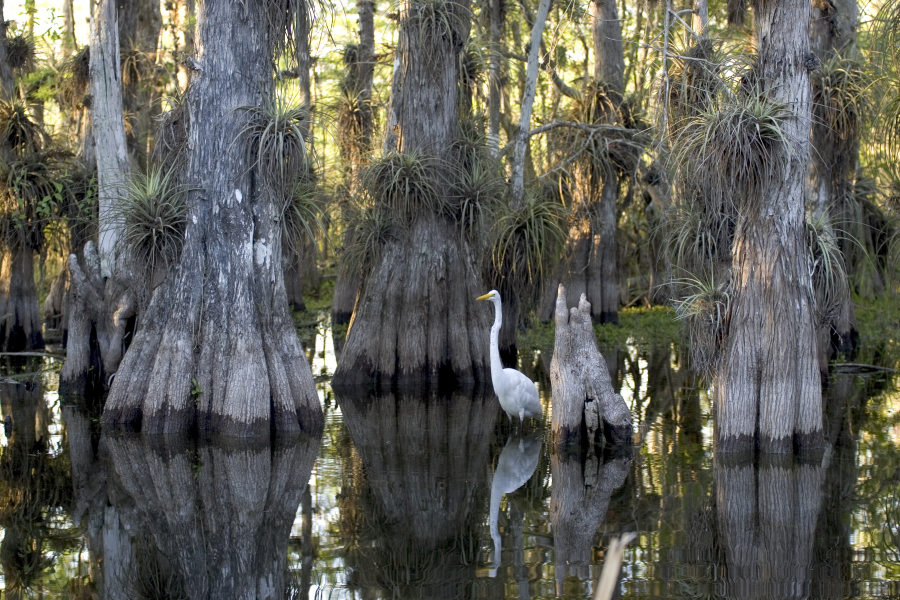In March, the Governor of Florida shocked much of the country with childish antics -- instead of addressing the problem of climate change, he found a solution in completely ignoring it. Despite the fact that Florida will be severely affected by rising ocean levels, temperature changes, and wildlife extinction, Governor Rick Scott decided that the best option was to restrict the usage of words like “climate change” and “global warming.”
Thought you’d seen the last of Gov. Scott’s climate denying and anti-environmental antics? Think again. Once more, Gov. Scott finds himself on the front pages with another ironic headline. Now, Gov. Scott and the Secretary of the Florida Department of Environmental Protection he appointed, Jon Steverson, have proposed to allow hunting, grazing of cattle, and logging in protected state parks. You read that right: arguing it will help preserve parks in Florida, Scott has suggested we cut down trees, kill animals that live in the habitat, and allow invasive cattle to strip the ground of grass and shrubbery.
Both Gov. Scott and Steverson have supposedly proposed this “plan” as a way to offset the cost of Florida’s 171 state parks. They have suggested a leasing program be implemented so that ranchers can take over parts of state park land and allow their cattle to graze. Hunting season for deer, birds, and even bears is also on the table, if permits are approved, despite the fact that there has never been hunting in any of the state parks. Both Gov. Scott and Steverson are also contemplating whether or not to sell off huge chunks of park land to timber companies, with the possibility of building coal mines. Untimately, the two leaders want to exploit Florida’s wildlife and wild places and make its state parks into cash cows.
If you find yourself in Florida canoeing down a river, birdwatching in the woods, or hiking on a trail, there’s a possibility you would stumble across a coal mine polluting the river you’re on; a hunter taking aim at the birds you’re enjoying; or cattle stripping the land of not only the trail, but the scenery around it. Despite the fact that Steverson says he wants the parks to be a place "where the next generation of Floridians and visitors can continue to enjoy our state's diverse natural and cultural sites," both the Secretary and the Governor seem committed to doing the opposite.
The Sierra Club and many other environmental groups and community leaders are coming out in opposition to their Governor’s plans.
“State parks are supposed to be a place that protects wildlife, not a place to kill them,” said Frank Jackalone of the Sierra Club in Florida. “Talk about destroying the recreational experience for people.”
Other individuals are speaking out as well, including park rangers who have spent much of their lives protecting these lands, activists from the Defenders of Wildlife, and regular citizens from the communities nearby.
Over the next coming weeks, these proposals will be brought up in hearings. We will have the opportunity to voice our opposition to these plans that put our beloved trees, rivers, and wildlife at risk. In addition, according to the Palm Beach Post, Steverson’s very own appointment is under fire. The Florida Cabinet will soon meet to vote on the Governor’s appointments.
There is still time to save our parks, to save the nature trails, the wildlife, and the very land we hold dear.
Florida is obviously a place where many people not only live, but where many Americans travel . It is their parks -- the sprawling swamplands, the lush forests, the relaxing coastlines, that drive many people to make the trek down to one of our most southern states. And now, these areas are under threat. For those who appreciate this land, both visitors and Floridians alike, it comes down to us to protect them. Voice your opposition to these plans and your unhappiness with the consequences they may bring -- tell Governor Scott and Secretary Steverson that you want these lands protected, so that they can be appreciated for generations to come.
